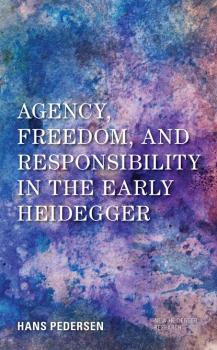New Heidegger Research
Скачать книги из серии New Heidegger ResearchTranscending Reason
The received view of Martin Heidegger’s work is that he leaves little room for reason in the practice of philosophy or the conduct of life. Citing his much-scorned remark that reason is the “stiff-necked adversary of thought”, critics argue that Heidegger’s philosophy effectively severs the tie between reason and normativity, leaving anyone who adheres to his position without recourse to justifying reasons for their beliefs and actions. Transcending Reason is a collection of essays by leading Heidegger scholars that challenges this view by exploring new ways to understand Heidegger’s approach to the relationship between reason, normativity, and the philosophical methodology that gives us access to these issues. The volume points to Heidegger’s novel approach to reason understood in terms of what he calls Dasein’s ‘transcendence’—the ability to occupy the world as a space of normatively structured meanings in which we navigate our striving to be. By examining the strengths and weaknesses of this new and innovative take on Heidegger’s philosophy, this collection considers the possibility that he does not sever but rather reconceives the relation between reason and normativity.
Agency, Freedom, and Responsibility in the Early Heidegger
This book employs Heidegger’s work of the 1920s and early 1930s to develop distinctively Heideggerian accounts of agency, freedom, and responsibility, making the case that Heidegger’s thought provides a compelling alternative to the mainstream philosophical accounts of these concepts. Hans Pedersen demonstrates that Heidegger’s thought can be fruitfully used to develop a plausible alternative understanding of agency that avoids the metaphysical commitments that give rise to the standard free-will debate. The first several chapters are devoted to working out an account of the ontological structure of human agency, specifically focusing on the Heideggerian understanding of the role of mental states, causal explanations, and deliberation in human agency, arguing that action need not be understood in terms of the causal efficacy of mental states. In the following chapters, building on the prior account of agency, Pedersen develops Heideggerian accounts of freedom and responsibility. Having shown that action need not be understood causally, the Heideggerian view thereby avoids the conflict between free will and determinism that gives rise to the problem of free will and the correlative problem of responsibility.









